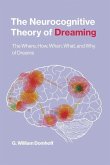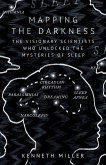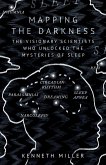Analyzing a Long Dream Series provides an extraordinary insight into the richness and variability of dreams, considering over 12,000 dreams that have been recorded for more than 30 years.
Internationally recognized dream scientist Michael Schredl opens up his own personal dream series, offering a unique window into the interplay between waking life and dreaming. The book considers a huge range of dream topics, including family, friends, schoolmates, colleagues, erotic dreams, alongside the appearance of everyday objects. It also discusses rarer themes such as pain perception, temperature perception, and typical dreams about toilets, exams, and teeth. As the author is both the dreamer and the researcher, questions like why we dream about topics we have never experienced in waking life - for example, about the pain of being shot in the stomach - can be addressed, shedding light on the creative nature of dreams. The in-depth analyses provided in this book attempt to answer the field's most profound questions: why do we dream every night, and why do we dream in such creative ways about the issues that are important to us in waking life? The dreams analyzed question existing dream theories such as simulation theories, and the author proposes a function of recalled dreams for creative problem solving and provides ideas for future research.
This fascinating book is an essential read for all dream researchers and students of the psychology of dreams.
Internationally recognized dream scientist Michael Schredl opens up his own personal dream series, offering a unique window into the interplay between waking life and dreaming. The book considers a huge range of dream topics, including family, friends, schoolmates, colleagues, erotic dreams, alongside the appearance of everyday objects. It also discusses rarer themes such as pain perception, temperature perception, and typical dreams about toilets, exams, and teeth. As the author is both the dreamer and the researcher, questions like why we dream about topics we have never experienced in waking life - for example, about the pain of being shot in the stomach - can be addressed, shedding light on the creative nature of dreams. The in-depth analyses provided in this book attempt to answer the field's most profound questions: why do we dream every night, and why do we dream in such creative ways about the issues that are important to us in waking life? The dreams analyzed question existing dream theories such as simulation theories, and the author proposes a function of recalled dreams for creative problem solving and provides ideas for future research.
This fascinating book is an essential read for all dream researchers and students of the psychology of dreams.









